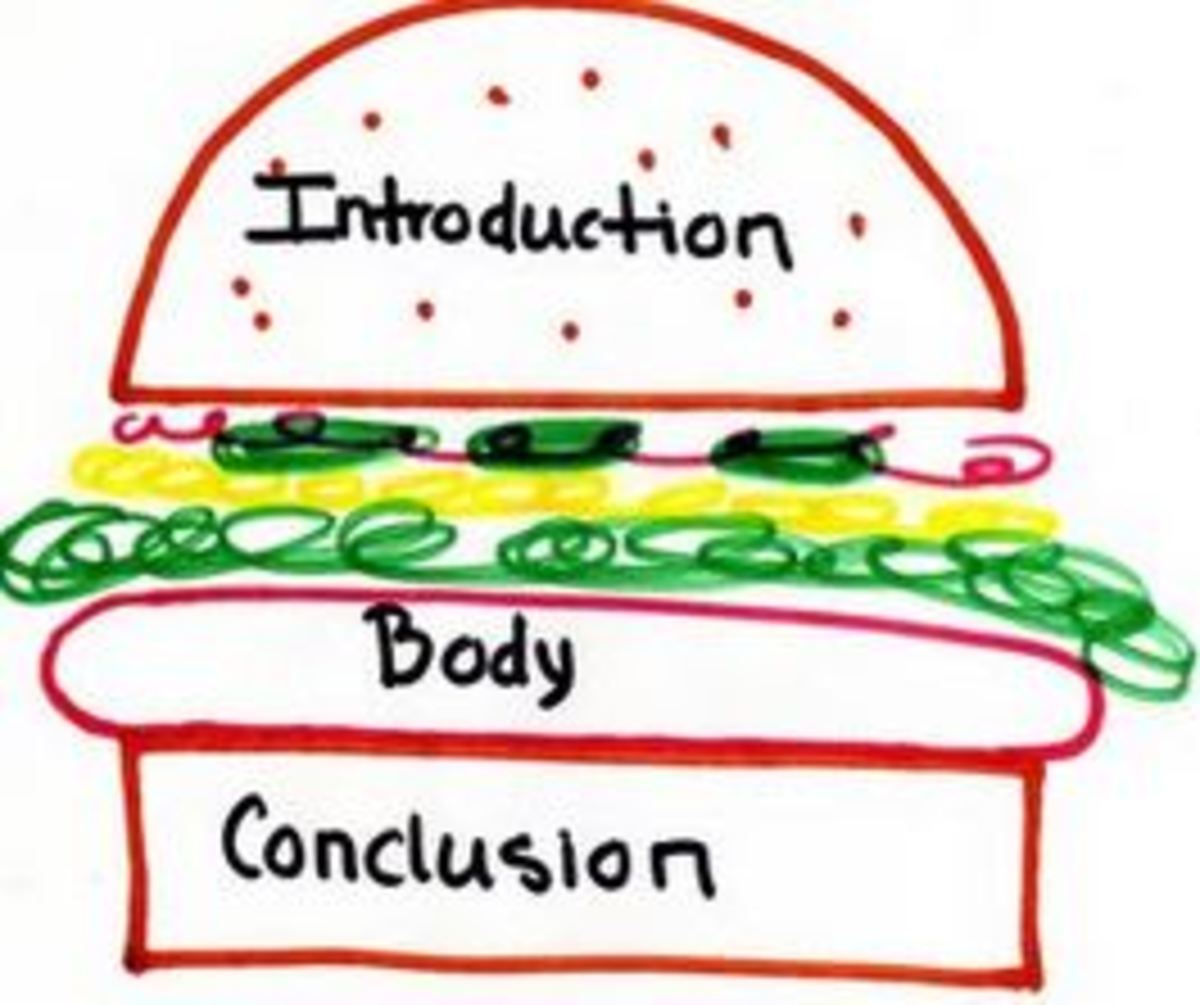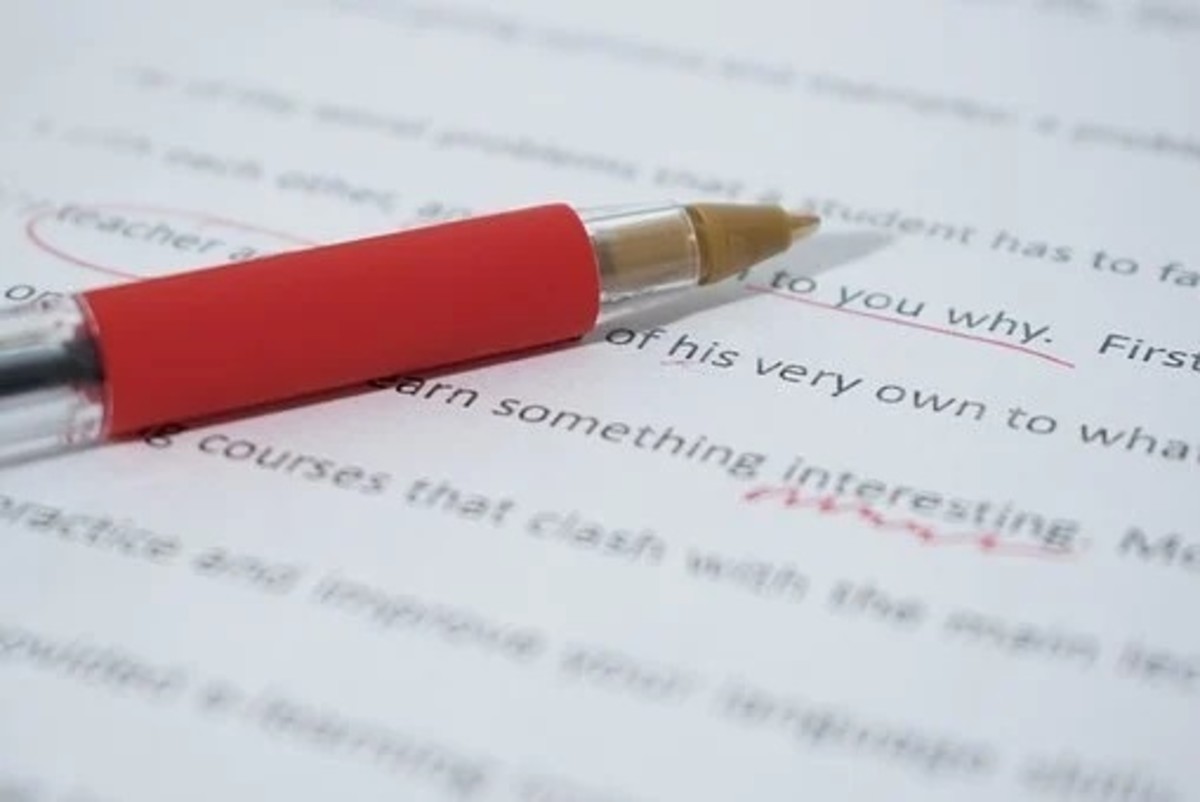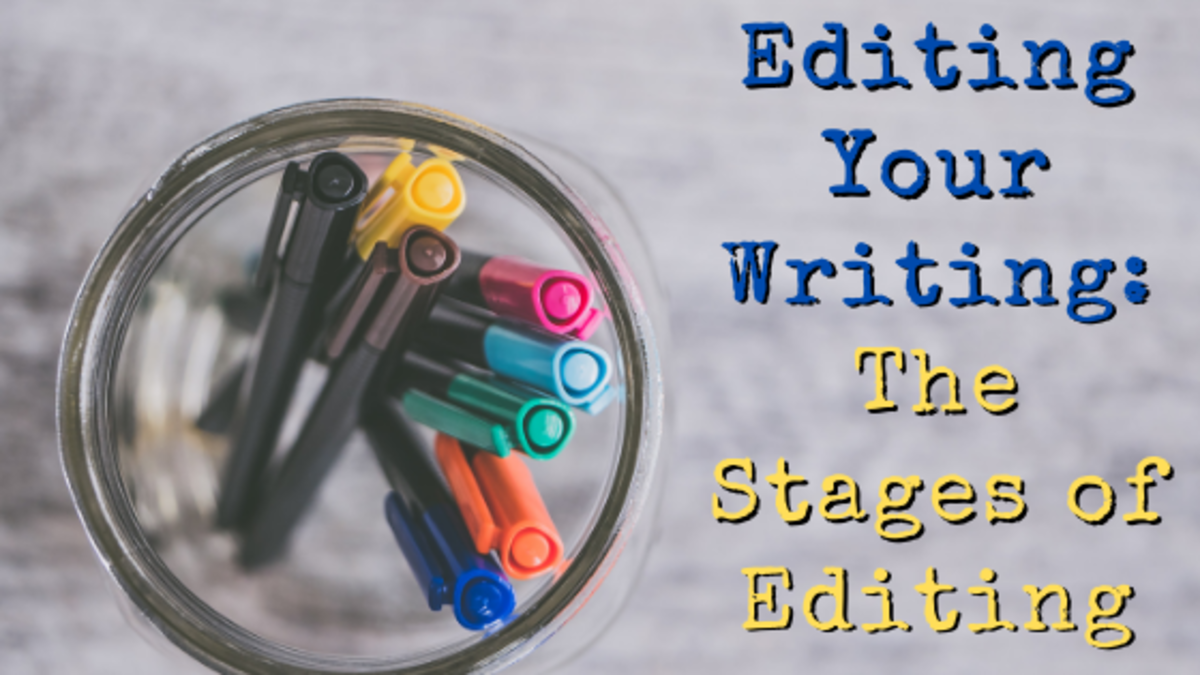Effective Writing: Communicating with Your Reader

English composition may be a chore to learn, but grammar and punctuation have rules for some important reasons. The author wants to express his or her ideas in a clear and concise manner. Incorrectly structured grammar or the wrong usage of punctuation will confuse readers and may cause them to give up and move on. The average attention span of a web surfer is measured in seconds, and if articles contain text with “bumps,” readers will leave skid marks on the page. Common mistakes can be so easily made in writing. After a piece is written, your eyes may scan the page, but they won’t always see the mistakes. When your article is finished, always read it out loud, or find a friend to read it.
Type of Font and Size
Pretty shaped fonts on colored backgrounds pulse with energy and fill the page with creativity. However, the reader may have difficulty deciphering the prose and complain of a headache. Unless an audience is used to script fonts with large type, stick to Arial, New Times Roman or Calibri with an 11 or 12 pt. font size. Other simple fonts will work, but always remember the road the reader is on must remain smooth for an pleasurable journey. The fonts may look boring to the writer, but people “read” the words in their heads. The point of writing is taking the audience where the writer wants them to go, and not just attracting their attention to a decorated page.
Common Spelling Confusions
Of all the misspelled words in the English language—it’s and its— are the most common. The correct contraction of it is = it’s. The possessive form of it, is always its. No apostrophe.
- Correct: The tree is losing its leaves.
- Incorrect: The flower is losing it’s petals
- Correct: It’s a great day to go swimming.
- Incorrect: The man told me its in English.
Accept and Except
These 2 words are easily confused and frequently used incorrectly. Accept means to agree to or receive something.
- She accepted the wine as a gift.
Except is to exclude or distinguish apart from.
- Everyone went back to the house except the dog.
Affect and Effect
Often confused, these 2 words just sound too much alike. Affect means to influence.
- My sore foot will affect my golf swing.
- She affected an air of royalty.
Effect has 2 different meanings, just to make things more difficult for writers. Effect, used as a noun, means a result or consequence.
- The loud music may have an effect on your hearing.
Effect, used as a verb, means to accomplish or bring about.
- The new laws have effected major changes in policies for city officials.
Give Direction to Your Reader with Commas
Before the commas put you in a coma, remember how important these can be in your writing. My biggest struggle has always been with commas, it took me a long time (okay, I still have to look it up) to master comma usage. Punctuation verbalizes your prose to your reader with an easy flow and a smooth ride. Commas take your reader where you want them to go.
Commas and Sentence Introductions
Use commas after the introduction of a sentence. Common starter words include after, because, if, since, when, while, although, due to, since, and as.
- While I was watching TV, the phone rang.
- If you want to make more money, you should get a job.
- Due to the nature of this hub topic, I am falling asleep.
- Since everyone hates my cooking, we are going out to eat.
However, don’t separate the main idea from the introduction with a comma. You can’t reverse the introduction to the sentence and still use the comma. For example:
- Incorrect: The phone rang, while I was watching TV.
- Correct: The phone rang while I was watching TV.
- Incorrect: You should get a job, if you want to make more money.
- Correct: You should get a job if you want to make more money.
Use commas to set off introductory words and phrases. Yes, well, however, are commonly used introductory words that increase the flow of your idea.
- Well, you may want to try the green jellybeans.
- Yes, I would like to marry a millionaire.
- However, the true meaning of life is subjective.
- In addition, the data suggests that people are basically happy.
Emphasis Your Ideas with Commas
Use commas to separate ideas when they are joined by and, but, for, or, so or yet.
- The cat was starving, yet he refused to eat.
- Several people complained of boredom, but the Hubpage text just kept going on and on.
- The man didn’t understand the question, so he couldn't give an answer.
- Several people were missing from the show, or they didn't have the correct address.
Never follow the word “that” with a comma. The ideas in the sentence are essential and you will split your ideas apart.
- Correct: I went to the store that sells tasty pizza.
- Incorrect: I went to the store, that sells tasty pizza.
The word that, in this case, acts as a comma in itself, and it’s not necessary to emphasis the introduction of the sentence.
Writing is Hard Work: But we Love it!
As we all strive to write well, we understand the complexity of mechanics and prose. Don’t let the technicalities of punctuation and grammar dampen your creativity or keep you from writing. It’s important to practice and hone your craft. We are all learning every time our fingers touch the keys. The mechanics of writing are a matter of progress, and not perfection.
Future Hub Information on Writing
What would you like to see in future Hubs
Is this Hub Helpful?
Does this Information Help Your Writing Mechanics?
Writing for a Living
- trueintellect.com
Learn More about Writing for a Living for Free!








